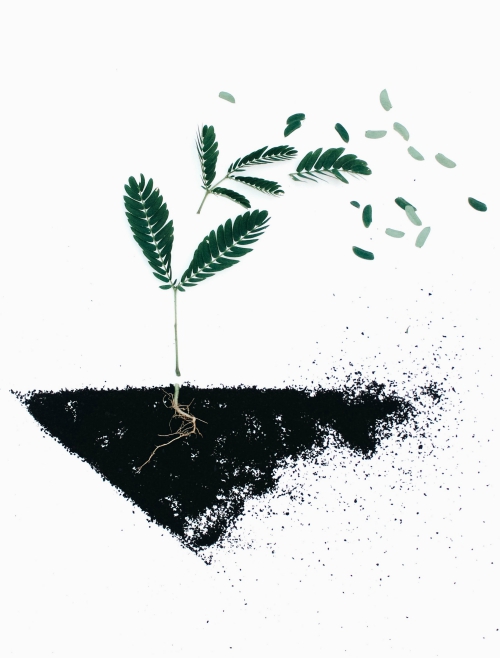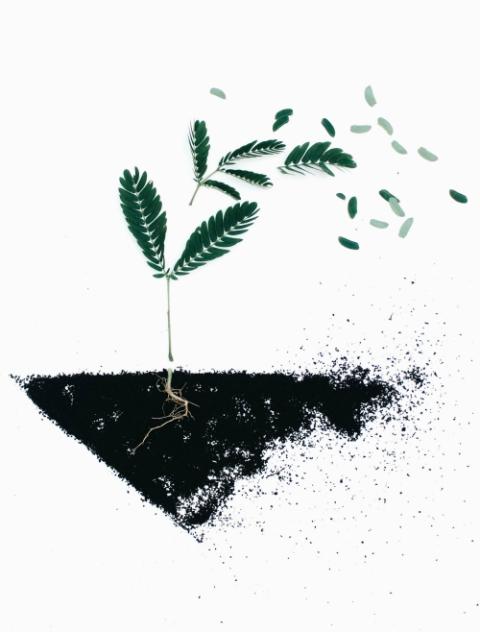
(Unsplash/Evie S.)
It happened on Broadway, in 1957. A guy named Tony was trying to escape gang life and he took a break from delivering Coke (the real thing) to sing. Standing amid tenements, surrounded by drying lingerie, he poured his whole heart into Stephen Sondheim's lyrics: "Could it be? Yes, it could. Something's coming, something good." Alas, "West Side Story" tells a tragic 20th-century rendition of "Romeo and Juliet" and in spite of his hopes, Tony couldn't escape fate. He died in the cycle of violence he tried to halt.
The theme of the futility of trying to do good is as old as storytelling and usually rings truer than the assurance that the heroes in white hats always win. The best dramas, and even the best comedies, engage us in ambiguity; they portray the struggle to discern and practice genuine goodness in the midst of confusing and competing circumstances and philosophies.
One wonders what St. Paul would come up with if he were invited to write a few seasons of a contemporary TV drama. He's got ready-made themes in the epistle to the Romans, particularly Chapters 7 and 8. Chapter 7 is a discourse on the quest for freedom and human inconsistency. Chapter 8 entices the audience into believing in the certainty of God's future: the "glorious freedom of the children of God."
For Paul, even though our efforts may feel futile, all of creation is ultimately moving toward transformation in God.
With that as his interpretive key, Paul might model the plots of Season 1 on Jesus' parable of the sower and the seed. Being the sort of preacher he was, Paul would spend ample time exploring the problems, starting with the seed that totally missed its mark and got eaten by the birds.

(Unsplash/Evie S.)
After doing his ecological research, Paul would cleverly lead his audience to realize that what we consider loss can bring hidden gain: Some seeds slip to good soil from the birds' beaks or fall after being caught in their feathers, others get dispersed through the birds' droppings. (In a couple of weeks, we'll hear him explain that all things work for good for those who love God.)
Elaborating on the rocky ground, Paul would tell stories about people who close themselves off, refusing to relate deeply or make commitments. He would dramatize their lack of concern for the others with whom they make up the body of Christ.
The thorns? He'd have a heyday with that! He has all the raw material he needs in his correspondence with those Corinthians he berated for putting up with rivalry, infighting, discrimination and incest in their community.
The seeds on good ground would provide a subtle backdrop to every episode. They would be inconspicuous because they are planted deep and their progress is so slow that it's almost imperceptible. Not only that, but time and again, it would seem that the good seed sinks into the soil only to die, or as Paul says in today's reading, to be subject to corruption.
Paul's drama would not shy from showing suffering, but his depictions of pain and sorrow would be tinged with hope for something unimaginable, what he called the revelation of the children of God.
Of course, we don't need Paul to write this TV series. It's happening all around us. Our challenge is to discern the underlying plot in our own dramas and to decide how to play our roles so as to live into the unimaginable future we are offered.
Advertisement
Today's first reading assures us that, whether or not we see it, God's grace is at work in our world. Jesus elaborates on this in the parable of the sower, telling us not to worry about what seems to be wasted, but to concentrate on the seed in good ground.
If we take that as a Pollyanna approach to life, we're missing the Jesus' message. On the one hand, as we will hear more clearly in next week's Gospel, our ideas about how things should go are not necessarily the same as God's ideas. Plants that don't grow as we think they ought may become the seeds of transformation in a far-distant field. As Pope Francis so famously reminds us, "Who are we to judge?"
Secondly, if we choose to concentrate on what goes wrong, we'll miss the 30-, 60- and 100-fold that is proliferating all around us.
Real life is more ambiguous than the teenagers of "West Side Story" could understand. Not all of our projects will come to fruition as we hope, but neither are we ruled by fate. We believe that the story of the universe is one of transformation, not inevitable tragedy. That implies surprises. We never know when an unexpected seed will fall near and produce something very good.
[St. Joseph Sr. Mary M. McGlone serves on the congregational leadership team of the Sisters of St. Joseph of Carondelet.]
